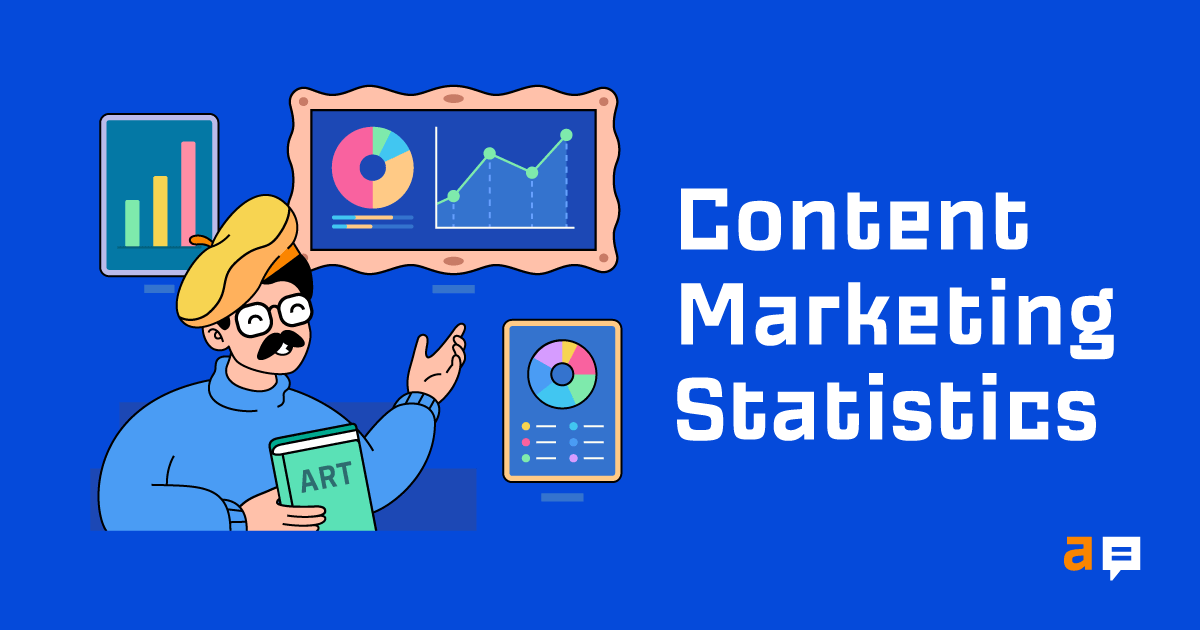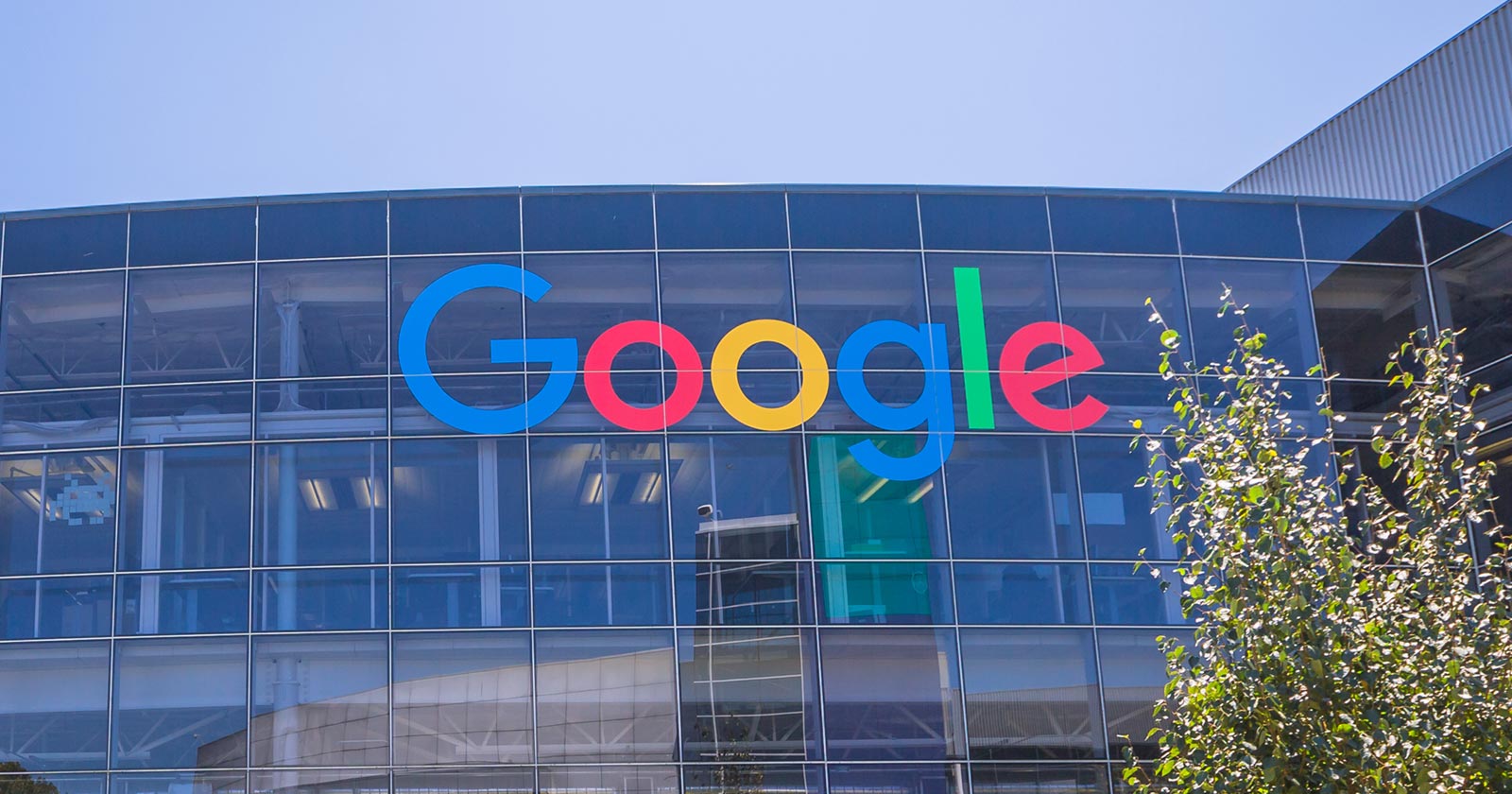SEO
66 Content Marketing Statistics for 2022

In this article, we’ll highlight the following:
Here are the most interesting content marketing statistics we think you should know.
- 82% of marketers are actively investing in content marketing, 10% report not using content marketing, and 8% are unsure if their company uses content marketing (HubSpot).
- 43% of B2B marketers have a documented content marketing strategy, and 60% of the most successful B2B marketers have a documented content marketing strategy (Content Marketing Institute).
- 69% of marketers actively invest time in SEO (HubSpot).
- 60% of marketers report that content marketing generates demand/leads. In addition, 70% of marketers say that content marketing helps to educate the audience, and 60% say that it helps build loyalty with existing clients/customers (CMI).
- Video is the primary form of marketing media being created in 2021, followed by blogs (used by more than half of marketing teams), then infographics (HubSpot).
- 73% of people admit to skimming blog posts, while 27% consume them thoroughly (HubSpot).
- 71% of marketers say that targeting strategic keywords is their top SEO tactic (HubSpot).
- 51% of the businesses that invest in content marketing publish content every day (The Manifest).
- Although 32% of respondents say they are overwhelmed by the amount of content available, a majority (44%) say they typically consume three to five pieces of content before engaging with a vendor (DemandGen).
- 69% of respondents prefer to learn about a product or service from a short video. 18% prefer to read a text-based article, website, or post. 4% prefer to view an infographic. 3% prefer to download an ebook or manual. 3% prefer to attend a webinar or pitch. 2% prefer to receive a sales call or demo (Wyzowl).
- 81% of marketers view content as a core business strategy (CMI).
As you can see in the previous section, most successful content marketers have a documented content strategy. Here are some statistics to inspire your strategy.
- The top three primary goals of creating content are boosting sales, building relationships with customers, and increasing brand awareness (eMarketer).
- Content marketing generates over 3x as many leads as outbound marketing and costs 62% less (Demand Metric).
- 72% of the most successful marketers in North America measure the ROI of their content marketing (eMarketer).
Here’s what B2B marketers say about their content marketing efforts.
- Only 4% of B2B marketers don’t plan to develop a content marketing strategy (CMI).
- 87% of B2B marketers prioritize the audience’s informational needs over the organization’s sales/promotional messages (CMI).
- Content creation is the most outsourced content marketing activity among B2B marketers (CMI).
- The top three organic content distribution channels used by B2B marketers are social media, email, and their organization’s blog/website (CMI).
- LinkedIn is used by 96% of B2B content marketers (CMI).
- Only 28% of B2B marketers don’t use paid content distribution channels (CMI).
- 78% of B2B marketers employ keyword research for SEO while creating content (CMI).
Let’s see how answers given by B2C content marketers compare to their B2B counterparts.
- Only 6% of B2C marketers don’t plan to develop a content marketing strategy (CMI).
- Content creation is the most outsourced content marketing activity among B2C marketers (CMI).
- The top three organic content distribution channels used by B2C marketers are social media, email, and their organization’s blog/website (CMI).
- The top three most often used content formats by B2C marketers are blog posts/short articles, email newsletters, and videos (CMI).
- B2C marketers who use at least two organic social media platforms report that Facebook (59%) and Instagram (21%) produce the best overall content marketing results (CMI).
- Only 28% of B2C marketers don’t use paid content distribution channels (CMI).
- 73% of B2C marketers employ keyword research for SEO while creating content (CMI).
As our collected statistics have already proven, most content marketers do keyword research and invest in SEO. In other words, they invest in organic search. Let’s see what else we can find about this marketing channel.
- 90.63% of pages get no organic search traffic from Google (Ahrefs).

- 68% of online experiences begin with a search engine (Brightedge).
- 71% of B2B researchers start their research with generic search instead of branded search (Google).
- 53% of shoppers say they always do research before a purchase to ensure they are making the best possible choice (Google).
- Only 5.7% of pages will rank in the top 10 search results within a year of publication (Ahrefs).
- Almost two-thirds of global online search comes from mobile devices (Perficient).
- 69% of marketers actively invest in SEO (HubSpot).
- The top three most often used metrics for SEO are keyword ranking, organic traffic, and time spent on page (HubSpot).
- Generally speaking, the more backlinks a page has, the more organic traffic it gets from Google (Ahrefs).
- The average #1 ranking page will also rank in the top 10 for nearly 1,000 other relevant keywords (Ahrefs).

- There’s no correlation between Flesch Reading Ease scores and ranking positions (Ahrefs).

Handpicked statistics for this cornerstone of many content strategies.
- People rarely read online. They’re far more likely to scan than read word for word. They simply want to pick out the information that is most pertinent to their current needs (Nielsen).
- 70% of people rather get information from blogs than traditional advertisements (Demand Metric).
- To date, there are more than 600 million blogs out of 1.9 billion websites in the world. Their authors account for over 6 million blog posts daily, or over 2.5 billion annually (hosting tribunal).
- How-to articles are the most popular content formats (77%), followed by news and trends (49%), and guides and ebooks (47%) (Statista).
- Only one-third of bloggers regularly check their blogs’ traffic analytics (Statista).
- Engagement starts to drop for posts with a reading time longer than seven minutes (Medium).

As reported by Hubspot, video is the primary form of marketing media being created in 2021. It seems that video marketing is no longer an option.
- 70% of viewers bought from a brand after seeing it on YouTube (Google).
- 79% of people say they’ve been convinced to buy or download a piece of software or app by watching a video (Wyzowl).
- 50.9% of B2B decision-makers use YouTube to research purchases (Hootsuite).
- YouTube is the second-most visited website in the U.S. by organic traffic (Ahrefs).
- YouTube reaches more 18- to 49-year-olds in an average week than all cable TV networks combined (Google).
- Video viewers say relating to their passions is 3X more important than content featuring famous actors (Google).
- Video viewers say relating to their passions is 1.6X more important than content with high production quality (Google).
- 86% of businesses use video as a marketing tool (Wyzowl).
- 91% of marketers feel the pandemic has made video more important for brands (Wyzowl).
- 96% of people have watched an explainer video to learn more about a product or service (Wyzowl).
- 85% of people want to see more videos from brands in 2021 (Wyzowl).
Brands like Slack, Shopify, and Basecamp have already invested in creating a branded podcast. These statistics show that marketers should at least consider advertising on podcasts.
- Podcast ad spending in the U.S. is expected to reach $1.74B in 2022, a 23% increase from 2021 (Statista).
- 57% of Americans listen to podcasts (Edison Research).
- 80% of podcast listeners listen to all or most of each episode (Podcast Insights).
- Weekly podcast listeners tune in to an average of eight podcasts per week (Edison Research).
- Each week in America, there are more podcast listeners than Netflix account holders (Edison Research).
Is visual content important? Is there something like the best day to publish? How do people decide what link to click? Find out below.
- People following directions with text and illustrations do 323% better than people following directions without illustrations (W.H Levie, H.Lentz).
- The majority of marketers surveyed say that visual content is a key component of their marketing strategy. 64% say that visuals are either essential or very important. Only 9.6% don’t require visuals for their content marketing (Venngage).
- There’s no “best day” to publish a new piece of content. Social shares are distributed evenly among posts published on different days of the week (Backlinko).
- The average time a reader allocates a newsletter after opening it is only 51 seconds. Participants of the study fully read only 19% of newsletters (Nielsen).
- When deciding which links to click on the web, users choose those with the highest information scent, which is a mix of cues they get from the link label, the context in which the link is shown, and their prior experiences (Nielsen).
Final thoughts
I hope you’ve found valuable insight in the above collection of statistics. After all, it’s always a good idea to look for data-driven answers to your marketing hypotheses.
But let’s remember that it’s wise to take any statistic with a grain of salt. Statistics are generalizations of only a portion of the reality around us. Also, they aren’t methodologically sound all of the time: small sample sizes, p‑hacking, and spurious correlations are quite common.
So if you’ve just read a piece of data that contradicts your professional marketing experience, don’t throw away your content strategy just yet. Instead, dig deeper.
Finally, if you want to learn more about content marketing, we’ve got a few guides ready for you:
Got questions? Ping me on Twitter.
SEO
Google On Hyphens In Domain Names

Google’s John Mueller answered a question on Reddit about why people don’t use hyphens with domains and if there was something to be concerned about that they were missing.
Domain Names With Hyphens For SEO
I’ve been working online for 25 years and I remember when using hyphens in domains was something that affiliates did for SEO when Google was still influenced by keywords in the domain, URL, and basically keywords anywhere on the webpage. It wasn’t something that everyone did, it was mainly something that was popular with some affiliate marketers.
Another reason for choosing domain names with keywords in them was that site visitors tended to convert at a higher rate because the keywords essentially prequalified the site visitor. I know from experience how useful two-keyword domains (and one word domain names) are for conversions, as long as they didn’t have hyphens in them.
A consideration that caused hyphenated domain names to fall out of favor is that they have an untrustworthy appearance and that can work against conversion rates because trustworthiness is an important factor for conversions.
Lastly, hyphenated domain names look tacky. Why go with tacky when a brandable domain is easier for building trust and conversions?
Domain Name Question Asked On Reddit
This is the question asked on Reddit:
“Why don’t people use a lot of domains with hyphens? Is there something concerning about it? I understand when you tell it out loud people make miss hyphen in search.”
And this is Mueller’s response:
“It used to be that domain names with a lot of hyphens were considered (by users? or by SEOs assuming users would? it’s been a while) to be less serious – since they could imply that you weren’t able to get the domain name with fewer hyphens. Nowadays there are a lot of top-level-domains so it’s less of a thing.
My main recommendation is to pick something for the long run (assuming that’s what you’re aiming for), and not to be overly keyword focused (because life is too short to box yourself into a corner – make good things, course-correct over time, don’t let a domain-name limit what you do online). The web is full of awkward, keyword-focused short-lived low-effort takes made for SEO — make something truly awesome that people will ask for by name. If that takes a hyphen in the name – go for it.”
Pick A Domain Name That Can Grow
Mueller is right about picking a domain name that won’t lock your site into one topic. When a site grows in popularity the natural growth path is to expand the range of topics the site coves. But that’s hard to do when the domain is locked into one rigid keyword phrase. That’s one of the downsides of picking a “Best + keyword + reviews” domain, too. Those domains can’t grow bigger and look tacky, too.
That’s why I’ve always recommended brandable domains that are memorable and encourage trust in some way.
Read the post on Reddit:
Read Mueller’s response here.
Featured Image by Shutterstock/Benny Marty
SEO
Reddit Post Ranks On Google In 5 Minutes

Google’s Danny Sullivan disputed the assertions made in a Reddit discussion that Google is showing a preference for Reddit in the search results. But a Redditor’s example proves that it’s possible for a Reddit post to rank in the top ten of the search results within minutes and to actually improve rankings to position #2 a week later.
Discussion About Google Showing Preference To Reddit
A Redditor (gronetwork) complained that Google is sending so many visitors to Reddit that the server is struggling with the load and shared an example that proved that it can only take minutes for a Reddit post to rank in the top ten.
That post was part of a 79 post Reddit thread where many in the r/SEO subreddit were complaining about Google allegedly giving too much preference to Reddit over legit sites.
The person who did the test (gronetwork) wrote:
“…The website is already cracking (server down, double posts, comments not showing) because there are too many visitors.
…It only takes few minutes (you can test it) for a post on Reddit to appear in the top ten results of Google with keywords related to the post’s title… (while I have to wait months for an article on my site to be referenced). Do the math, the whole world is going to spam here. The loop is completed.”
Reddit Post Ranked Within Minutes
Another Redditor asked if they had tested if it takes “a few minutes” to rank in the top ten and gronetwork answered that they had tested it with a post titled, Google SGE Review.
gronetwork posted:
“Yes, I have created for example a post named “Google SGE Review” previously. After less than 5 minutes it was ranked 8th for Google SGE Review (no quotes). Just after Washingtonpost.com, 6 authoritative SEO websites and Google.com’s overview page for SGE (Search Generative Experience). It is ranked third for SGE Review.”
It’s true, not only does that specific post (Google SGE Review) rank in the top 10, the post started out in position 8 and it actually improved ranking, currently listed beneath the number one result for the search query “SGE Review”.
Screenshot Of Reddit Post That Ranked Within Minutes
Anecdotes Versus Anecdotes
Okay, the above is just one anecdote. But it’s a heck of an anecdote because it proves that it’s possible for a Reddit post to rank within minutes and get stuck in the top of the search results over other possibly more authoritative websites.
hankschrader79 shared that Reddit posts outrank Toyota Tacoma forums for a phrase related to mods for that truck.
Google’s Danny Sullivan responded to that post and the entire discussion to dispute that Reddit is not always prioritized over other forums.
Danny wrote:
“Reddit is not always prioritized over other forums. [super vhs to mac adapter] I did this week, it goes Apple Support Community, MacRumors Forum and further down, there’s Reddit. I also did [kumo cloud not working setup 5ghz] recently (it’s a nightmare) and it was the Netgear community, the SmartThings Community, GreenBuildingAdvisor before Reddit. Related to that was [disable 5g airport] which has Apple Support Community above Reddit. [how to open an 8 track tape] — really, it was the YouTube videos that helped me most, but it’s the Tapeheads community that comes before Reddit.
In your example for [toyota tacoma], I don’t even get Reddit in the top results. I get Toyota, Car & Driver, Wikipedia, Toyota again, three YouTube videos from different creators (not Toyota), Edmunds, a Top Stories unit. No Reddit, which doesn’t really support the notion of always wanting to drive traffic just to Reddit.
If I guess at the more specific query you might have done, maybe [overland mods for toyota tacoma], I get a YouTube video first, then Reddit, then Tacoma World at third — not near the bottom. So yes, Reddit is higher for that query — but it’s not first. It’s also not always first. And sometimes, it’s not even showing at all.”
hankschrader79 conceded that they were generalizing when they wrote that Google always prioritized Reddit. But they also insisted that that didn’t diminish what they said is a fact that Google’s “prioritization” forum content has benefitted Reddit more than actual forums.
Why Is The Reddit Post Ranked So High?
It’s possible that Google “tested” that Reddit post in position 8 within minutes and that user interaction signals indicated to Google’s algorithms that users prefer to see that Reddit post. If that’s the case then it’s not a matter of Google showing preference to Reddit post but rather it’s users that are showing the preference and the algorithm is responding to those preferences.
Nevertheless, an argument can be made that user preferences for Reddit can be a manifestation of Familiarity Bias. Familiarity Bias is when people show a preference for things that are familiar to them. If a person is familiar with a brand because of all the advertising they were exposed to then they may show a bias for the brand products over unfamiliar brands.
Users who are familiar with Reddit may choose Reddit because they don’t know the other sites in the search results or because they have a bias that Google ranks spammy and optimized websites and feel safer reading Reddit.
Google may be picking up on those user interaction signals that indicate a preference and satisfaction with the Reddit results but those results may simply be biases and not an indication that Reddit is trustworthy and authoritative.
Is Reddit Benefiting From A Self-Reinforcing Feedback Loop?
It may very well be that Google’s decision to prioritize user generated content may have started a self-reinforcing pattern that draws users in to Reddit through the search results and because the answers seem plausible those users start to prefer Reddit results. When they’re exposed to more Reddit posts their familiarity bias kicks in and they start to show a preference for Reddit. So what could be happening is that the users and Google’s algorithm are creating a self-reinforcing feedback loop.
Is it possible that Google’s decision to show more user generated content has kicked off a cycle where more users are exposed to Reddit which then feeds back into Google’s algorithm which in turn increases Reddit visibility, regardless of lack of expertise and authoritativeness?
Featured Image by Shutterstock/Kues
SEO
WordPress Releases A Performance Plugin For “Near-Instant Load Times”

WordPress released an official plugin that adds support for a cutting edge technology called speculative loading that can help boost site performance and improve the user experience for site visitors.
Speculative Loading
Rendering means constructing the entire webpage so that it instantly displays (rendering). When your browser downloads the HTML, images, and other resources and puts it together into a webpage, that’s rendering. Prerendering is putting that webpage together (rendering it) in the background.
What this plugin does is to enable the browser to prerender the entire webpage that a user might navigate to next. The plugin does that by anticipating which webpage the user might navigate to based on where they are hovering.
Chrome lists a preference for only prerendering when there is an at least 80% probability of a user navigating to another webpage. The official Chrome support page for prerendering explains:
“Pages should only be prerendered when there is a high probability the page will be loaded by the user. This is why the Chrome address bar prerendering options only happen when there is such a high probability (greater than 80% of the time).
There is also a caveat in that same developer page that prerendering may not happen based on user settings, memory usage and other scenarios (more details below about how analytics handles prerendering).
The Speculative Loading API solves a problem that previous solutions could not because in the past they were simply prefetching resources like JavaScript and CSS but not actually prerendering the entire webpage.
The official WordPress announcement explains it like this:
Introducing the Speculation Rules API
The Speculation Rules API is a new web API that solves the above problems. It allows defining rules to dynamically prefetch and/or prerender URLs of certain structure based on user interaction, in JSON syntax—or in other words, speculatively preload those URLs before the navigation. This API can be used, for example, to prerender any links on a page whenever the user hovers over them.”
The official WordPress page about this new functionality describes it:
“The Speculation Rules API is a new web API… It allows defining rules to dynamically prefetch and/or prerender URLs of certain structure based on user interaction, in JSON syntax—or in other words, speculatively preload those URLs before the navigation.
This API can be used, for example, to prerender any links on a page whenever the user hovers over them. Also, with the Speculation Rules API, “prerender” actually means to prerender the entire page, including running JavaScript. This can lead to near-instant load times once the user clicks on the link as the page would have most likely already been loaded in its entirety. However that is only one of the possible configurations.”
The new WordPress plugin adds support for the Speculation Rules API. The Mozilla developer pages, a great resource for HTML technical understanding describes it like this:
“The Speculation Rules API is designed to improve performance for future navigations. It targets document URLs rather than specific resource files, and so makes sense for multi-page applications (MPAs) rather than single-page applications (SPAs).
The Speculation Rules API provides an alternative to the widely-available <link rel=”prefetch”> feature and is designed to supersede the Chrome-only deprecated <link rel=”prerender”> feature. It provides many improvements over these technologies, along with a more expressive, configurable syntax for specifying which documents should be prefetched or prerendered.”
See also: Are Websites Getting Faster? New Data Reveals Mixed Results
Performance Lab Plugin
The new plugin was developed by the official WordPress performance team which occasionally rolls out new plugins for users to test ahead of possible inclusion into the actual WordPress core. So it’s a good opportunity to be first to try out new performance technologies.
The new WordPress plugin is by default set to prerender “WordPress frontend URLs” which are pages, posts, and archive pages. How it works can be fine-tuned under the settings:
Settings > Reading > Speculative Loading
Browser Compatibility
The Speculative API is supported by Chrome 108 however the specific rules used by the new plugin require Chrome 121 or higher. Chrome 121 was released in early 2024.
Browsers that do not support will simply ignore the plugin and will have no effect on the user experience.
Check out the new Speculative Loading WordPress plugin developed by the official core WordPress performance team.
How Analytics Handles Prerendering
A WordPress developer commented with a question asking how Analytics would handle prerendering and someone else answered that it’s up to the Analytics provider to detect a prerender and not count it as a page load or site visit.
Fortunately both Google Analytics and Google Publisher Tags (GPT) both are able to handle prerenders. The Chrome developers support page has a note about how analytics handles prerendering:
“Google Analytics handles prerender by delaying until activation by default as of September 2023, and Google Publisher Tag (GPT) made a similar change to delay triggering advertisements until activation as of November 2023.”
Possible Conflict With Ad Blocker Extensions
There are a couple things to be aware of about this plugin, aside from the fact that it’s an experimental feature that requires Chrome 121 or higher.
A comment by a WordPress plugin developer that this feature may not work with browsers that are using the uBlock Origin ad blocking browser extension.
Download the plugin:
Speculative Loading Plugin by the WordPress Performance Team
Read the announcement at WordPress
Speculative Loading in WordPress
See also: WordPress, Wix & Squarespace Show Best CWV Rate Of Improvement
-

 PPC6 days ago
PPC6 days agoCompetitor Monitoring: 7 ways to keep watch on the competition
-

 PPC6 days ago
PPC6 days agoA History of Google AdWords and Google Ads: Revolutionizing Digital Advertising & Marketing Since 2000
-

 SEARCHENGINES6 days ago
SEARCHENGINES6 days agoMore Google March 2024 Core Update Ranking Volatility
-

 PPC6 days ago
PPC6 days ago31 Ready-to-Go Mother’s Day Messages for Social Media, Email, & More
-

 WORDPRESS5 days ago
WORDPRESS5 days agoTurkish startup ikas attracts $20M for its e-commerce platform designed for small businesses
-

 WORDPRESS7 days ago
WORDPRESS7 days agoThrive Architect vs Divi vs Elementor
-

 MARKETING5 days ago
MARKETING5 days agoRoundel Media Studio: What to Expect From Target’s New Self-Service Platform
-

 SEARCHENGINES5 days ago
SEARCHENGINES5 days agoGoogle Search Results Can Be Harmful & Dangerous In Some Cases












You must be logged in to post a comment Login